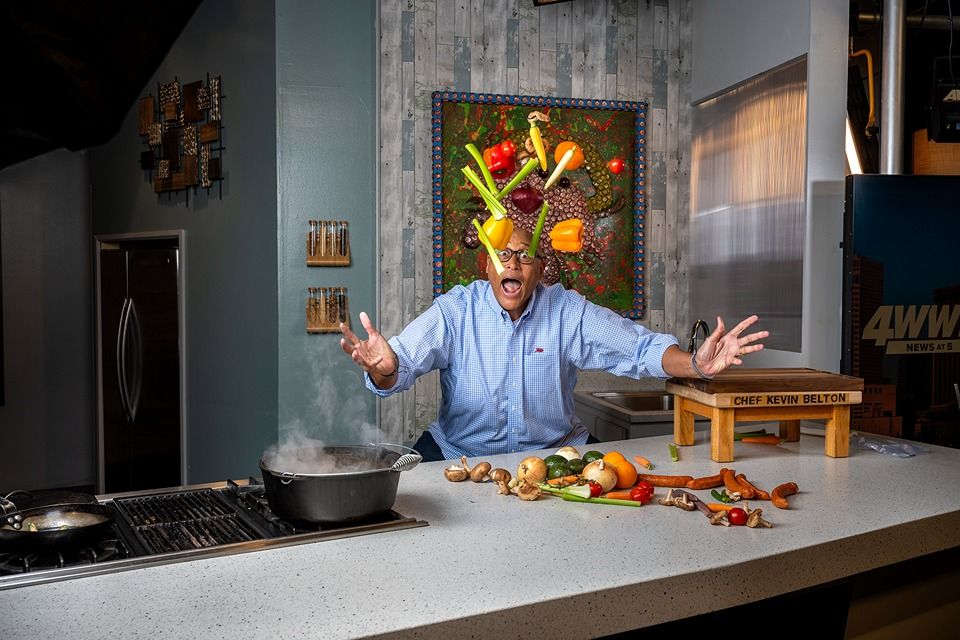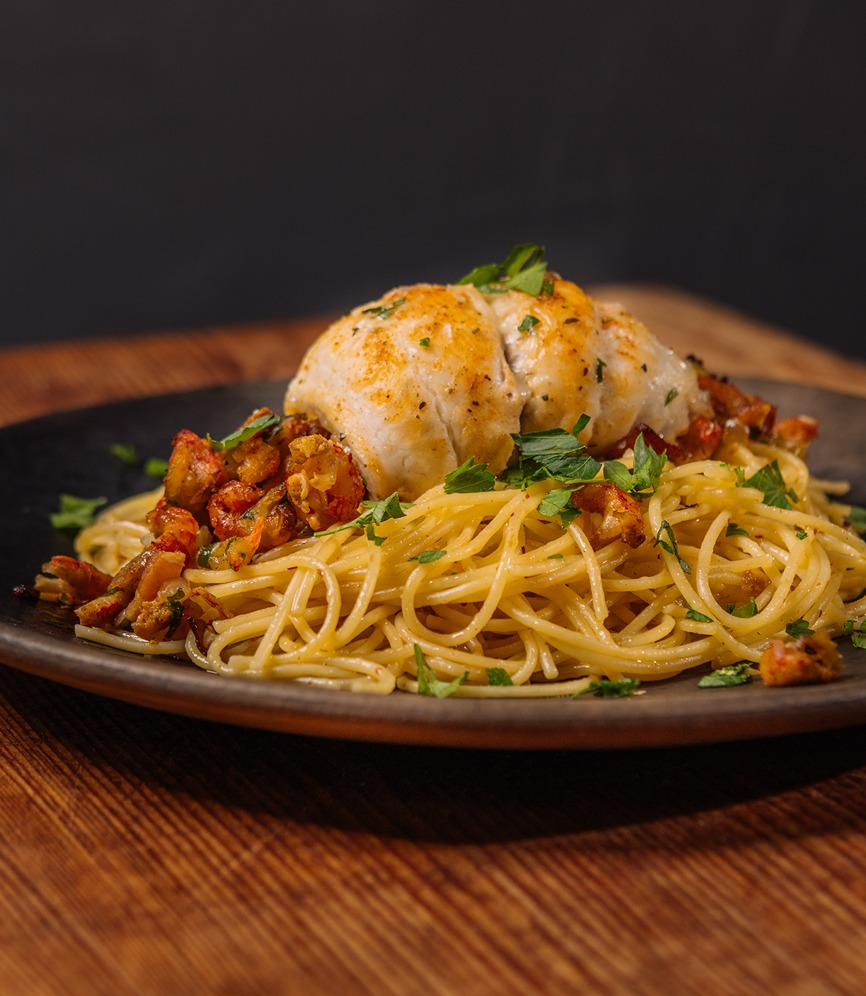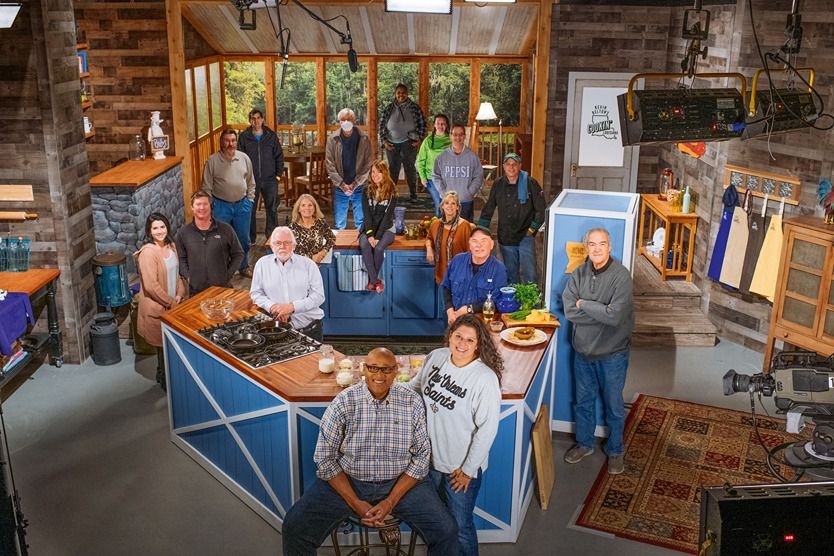Foundation of Flavor
"I grew up at the kitchen table, just like most South Louisiana homes. That's where everything takes place. There's the living room, there's the dining room, but, when company comes over, everyone's hanging out in the kitchen," Chef Kevin Belton said as he smiled.
Though he had no intentions of a culinary career and did not receive formal education in it, all that time spent at the kitchen table watching his mother and grandmother cook for the family soaked in and made a lasting impression.
Chef Kevin Belton is known to people around the world as the face of Louisiana cuisine as he led viewers through the process of making classic Creole and Cajun cuisine on WWL's "Naturally N'awlins'' and hosting such shows as Big Kevin, Little Kevin, New Orleans Cooking With Kevin Belton, and Kevin Belton's New Orleans Kitchen. He was tapped for those cooking shows due to his success teaching at the New Orleans School of Cooking, interacting with and entertaining visitors who wanted to understand how to take the flavors of the city back home with them.

"Joe Cahn started the New Orleans School of Cooking back in 1980 because people were coming to New Orleans and wanted to learn our cuisine. Joe didn't really cook. He was self-taught," Chef Belton explained. "When I started working with Joe, I managed the store. I didn't go to culinary school, but I got a copy of the book used in culinary school and started reading it. It teaches you terminology, and it teaches you basically how not to kill anybody. The cooking schools get you prepared, but you really learn through experience. I had that experience sitting at that kitchen table. I just needed the organized side, the official side to learn the terminology. I combined the two."
Young Belton was exposed to a world of flavor on that humble kitchen table in Uptown New Orleans. His mother Sarah cooked to relax and to experience new things. He remembered, "With my mom being a teacher, I sat in the kitchen to do my homework and be nosy. You could hear everything sitting at that kitchen table. Mom shopped the entire city. Mom would go shop across the river. There was a butcher shop on St. Bernard Avenue called Bashman's, and, no matter where she went to the grocery store, she would go there to get the meats. She would travel around. She would hit all the parishes surrounding New Orleans. She liked cooking whatever was fresh and available."
Seafood was a staple in the Belton house, as it was in many New Orleans' homes of the era due to its abundance in local waters. "I had an uncle that fished every weekend. Between my uncle and the neighbors, we'd always have fresh fish. You could just go out and catch everything," Chef Belton said.

Chef Belton entered college as a football player, and his finely tuned culinary sensibilities couldn't ignore what other students were cooking. "When I got to college, someone was cooking something, and I'm like, 'That's not right, let me show you how to do it.' All those years watching mom and grandma cooking, it just soaked in. I never planned on being a chef. I still kind of don't know what I want to do when I grow up."
The enticing aspect of Louisiana food is rooted in its "base foundation," according to Chef Belton. The melding of French, Spanish, Italian, African, and other cuisines is something not found anywhere else. "We don't have the soil for carrots to grow. Everywhere else around the country, when they started cooking, it was onion, celery, carrots. Carrots don't give off liquid. They get sweeter. Bell peppers give off liquid. That combination of the onion, celery, bell pepper—that liquid created from those vegetables is a unique flavor. It's interesting to watch the young chefs coming up. They're all excited with all these ideas, and they try these different things. After about four, five, or six months, you start to see that base foundation come back in of Louisiana cuisine. It's nice to see that base foundation of those folks who first settled the city is going to be kept alive."

The trinity was so prevalent in Sarah Belton's kitchen that it was usually the first thing cooking on the stove. Chef Belton happily recounted, "Her meals always had those Louisiana ingredients to it no matter what she was making. Often, she'd have the trinity sauteing on the stove, and I'd ask what's for dinner, and she'd say, 'I'm not sure yet.' She'd have the pantry door open, and the refrigerator was on the other side. She'd look at the fridge, look at the pantry, and say, 'I think we're going to do this.' But the trinity was already going."
Chef Kevin Belton preaches the importance of the kitchen table in all of his ventures. It's far more than just a place to eat a meal. A lot of learning, observing, and bonding can take place between the stove and the table more than it can in other rooms of the house. He suggested, "Take at least one time a day or week, sit with the family at the table together, and visit. It doesn't matter what you're serving, just sit there and visit with the family and friends once a week. That's the most important thing that we have to keep going."

